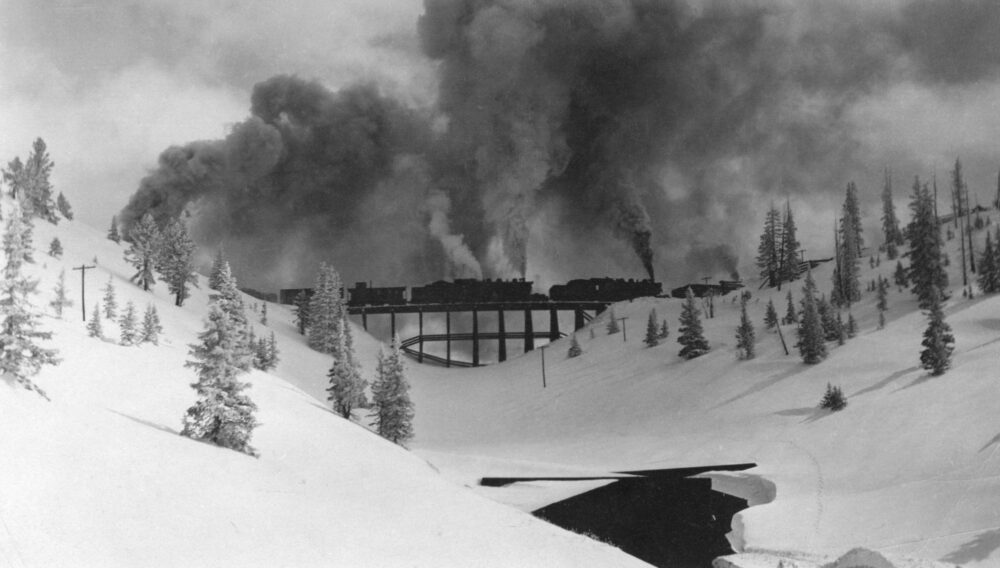Constructive Public Comment
Wanting to provide constructive comments to public officials but don’t know where to begin? This guide is for you.
This information has been largely repurposed from the Commenter’s Checklist at regulations.gov for commenting on NPRMs as well as from other sources. It has been annotated, expanded, and modified below to assist you in providing written or spoken comments. This information is intended to serve as a guide; it is not and should not be considered as legal advice. Please seek counsel from a lawyer if you have legal questions or concerns. These tips are meant to help the public submit comments that have an impact and help agency policy makers improve regulations, ordinances, rules, or other decisions.
When engaging with others, apply strong, persistent, polite pressure—and always be gracious and respectful. A hallmark negotiation principle at Preserve Rollins Pass is that there are no wicked people, only wicked problems.
Tips for Submitting Effective Comments*
OVERVIEW
A comment can express simple support or dissent for a regulatory action. However, a constructive, information-rich comment that clearly communicates and supports its claims is more likely to have an impact on regulatory decision making.
These tips are meant to help the public submit comments that have an impact and help policy makers improve regulations, ordinances, rules, or other decisions.
SUMMARY
- Read and understand the regulatory document you are commenting on.
- Feel free to reach out to the agency with questions.
- Be concise but support your claims.
- Base your justification on sound reasoning, scientific evidence, and/or how you will be impacted.
- Address trade-offs and opposing views in your comment.
- Typically, there is no minimum or maximum length for an effective written comment; if you are making a public comment at a hearing, time limits are usually imposed.
- The comment process is not a vote—one well supported comment is often more influential than a thousand form letters.
DETAILED RECOMMENDATIONS
- Take careful note of when comment periods end: date, time, and time zone are important. Begin formulating your comments well before the deadline.
- Attempt to fully understand each issue; if you have questions or do not understand a part of the regulatory document, proposed change, or action, you may ask for help from the agency contact listed in the document. Please note that although the agency contact can answer your questions about the document’s meaning, official comments must be submitted by following the proper process, form, or applicable meeting(s).
- Clearly identify the issues within the regulatory action on which you are commenting. If you are commenting on a particular word, phrase or sentence, provide the page number, column, and paragraph citation from the document, ordinance, statute, law, rule, or other document.
- If a rule raises many issues, do not feel obligated to comment on every one—select those issues that concern and affect you the most and/or you understand the best.
- Agencies often ask specific questions or raise issues in rulemaking proposals on subjects where they are actively looking for more information. While the agency will still accept comments on any part of the proposed regulation, please keep these questions and issues in mind while formulating your comment.
- Although agencies receive and appreciate all comments, constructive comments (either positive or negative) are the most likely to have an influence.
- If you disagree with a proposed action, suggest an alternative (including not regulating at all) and include an explanation and/or analysis of how the alternative might meet the same objective or be more effective.
- The comment process is not a vote. The board, commission, or government is attempting to formulate the best policy, so when crafting a comment it is important that you adequately explain the reasoning behind your position.
- Identify credentials and experience that may distinguish your comments from others. If you are commenting in an area in which you have relevant personal or professional experience (i.e., scientist, attorney, fisherman, businessman, etc.) say so.
- Agency reviewers look for sound science and reasoning in the comments they receive. When possible, support your comment with substantive data, facts, and/or expert opinions. You may also provide personal experience in your comment, as may be appropriate. By supporting your arguments well you are more likely to influence the agency decision making.
- Consider including examples of how the proposed rule would impact you negatively or positively.
- Comments on the economic effects of rules that include quantitative and qualitative data are especially helpful.
- Include the pros and cons and trade-offs of your position and explain them. Your position could consider other points of view, and respond to them with facts and sound reasoning.
- If you are uploading more than one attachment to a comment web form, it is recommend that you use the following file titles, as this standardized file naming convention will help agency reviewers distinguish your submitted attachments and aid in the comment review process:
- Attachment1_<insert title of document>
- Attachment2_<insert title of document>
- Attachment3_<insert title of document>
- Keep a copy of your comment in a separate file. This practice helps ensure that you will not lose your comment if you have a problem submitting it using a web form; further, it may come in handy if you wanted to read your written comment at a public hearing or when meeting with agency staff.
- If you are making a public comment at a hearing, be sure to be aware of any time limitations (usually 3 minutes) and practice beforehand so that you don’t run out of time.
COMMENTS ARE CONSIDERED SUBSTANTIVE IF THEY:
- Question, with reasonable basis, the adequacy and/or accuracy of information
- Cause changes or revisions in the alternatives
- Provide new or additional information relevant to the analysis
POSTED COMMENTS
After submission, your comment will be processed and in some cases, may be posted publicly. At times, an agency may choose not to post a submitted comment. Reasons for not posting the comment can include:
- The comment is part of a mass submission campaign or is a duplicate.
- The comment is incomplete.
- The comment is not related to the regulation.
- The comment has been identified as spam.
- The comment contains Personally Identifiable Information (PII) data.
- The comment contains profanity or other inappropriate language.
- The submitter requested the comment not be posted.
FORM LETTERS
Organizations often encourage their members to submit form letters designed to address issues common to their membership. Organizations including industry associations, labor unions, and conservation groups sometimes use form letters to voice their opposition or support of a proposed rulemaking, action, or decision. Many in the public mistakenly believe that their submitted form letter constitutes a “vote” regarding the issues concerning them. Although public support or opposition may help guide important public policies, agencies make determinations for a proposed action based on sound reasoning and scientific evidence rather than a majority of votes. A single, well-supported comment may carry more weight than a thousand form letters.
ANONYMOUS COMMENTS
Under the Forest Service’s NEPA process, comments submitted anonymously will be accepted and considered; however, anonymous comments will not provide the reviewer with standing to participate in subsequent administrative or judicial reviews. All comments received are part of the public record and will be available for public viewing. All personal identifying information (e.g., name, address, etc.), or otherwise sensitive information submitted voluntarily by the sender will be publicly accessible.
USEFUL COMMENTS
As defined in 36 CFR 218.2, specific written comments are those submitted to the responsible official or designee during a designated opportunity for public participation (§218.5(a)) provided for a proposed project. Written comments can include submission of transcriptions or other notes from oral statements or presentation. For the purposes of this rule, specific written comments should be within the scope of the proposed action, have a direct relationship to the proposed action, and must include supporting reasons for the responsible official to consider.
EXAMPLE: I would like to see more small diameter treatment in the moist and cold mixed conifer forest to address the transmission of severe wildfire to private lands from national forest lands.
NON-SPECIFIC COMMENTS
Non-specific comments are outside the scope of the analysis; appear as a “vote” (and the NEPA process is not about voting); do not provide supporting rationale; or lack sufficient specificity to support either a change in the document or to permit a meaningful response (i.e., emotional and without rationale). These comments are not considered.
EXAMPLE: I do not support this project at all. It is not in the best interest of the general public.
SUBMITTAL METHODS
Typically, comments can be submitted electronically through an agency’s website. Acceptable formats for electronic comments are text or HTML email, Adobe Portable Document Format (PDF), or formats viewable in Microsoft Word (such as .doc or .docx). Written comments can generally be submitted to agency officials, elected officials, and/or board members at public meetings using comment forms. Comments can also be mailed to the agency’s address, however must be postmarked by the end of the comment period. Remember: you must confirm the submittal methods for each action and do not rely solely on this information.
THREE QUOTES WORTH REMEMBERING AS PART OF THIS PROCESS
“It is the mark of an educated mind to be able to entertain a thought without accepting it.” —Generally attributed to Aristotle
“You can disagree without being disagreeable.” —R. Ginsburg
“The more I learn, the more I realize how much I don’t know.” —A. Einstein
THANK YOU FOR LENDING YOUR VOICE
Regardless of your position on a particular issue and whether or not you align with a popular opinion or hold minority viewpoints, your respectful involvement and participation in the public process is crucial. Your voice, perspective, experiences, knowledge, objections, and values makes our democracy work. The exchange of ideas from a well-informed community weaves a strong tapestry of ideas, fostering both healthy discourse and decision-making. Your contributions to the process are deeply appreciated—thank you.
* Throughout this page, the term “Comment” is used in place of the more technically accurate term “Public Submission” in order to make the recommendations easier to read and understand.
The primary purpose of our work is to inform the public.

